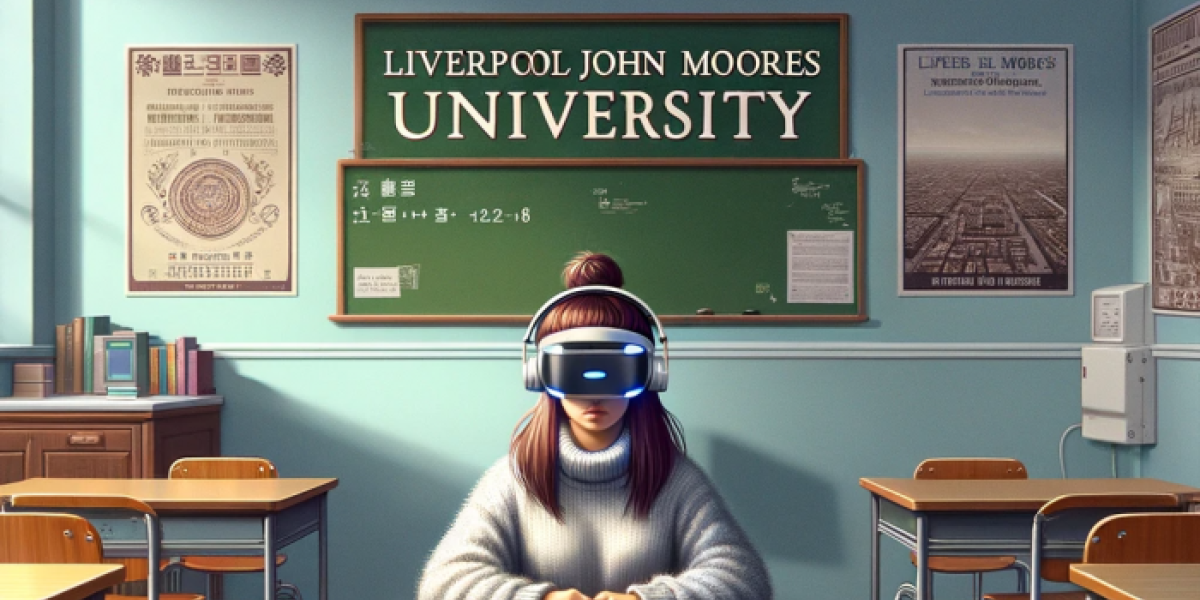
Chartered ABS responds to the DfE’s technical consultation on the International Student Levy
The Chartered ABS has submitted its response to the Department for Education’s technical consultation on the International Student Levy.
- Home
- / Insights
- / Knowledge sharing
- / Introducing immersive virtual reality into an MSc Management programme
Introducing immersive virtual reality into an MSc Management programme

Authors

Dr Victoria Jackson
Programme Leader, Liverpool Business School

Dr Chin Ong
Senior Lecturer, Liverpool Business School

Dr Oliver Kayas CMBE
Senior Lecturer in Digital Business, Liverpool Business School
Business curriculums are increasingly using new technologies in the classroom to enhance student learning experiences and prepare students for the future workplace where immersive technologies and computer-generated simulations are prevalent. However, while applied programmes in STEM and healthcare are more easily aligned with virtual reality (VR) because of their ability to produce an experiential environment for students to practice surgical procedures or simulate experiments, applications in business subjects are less clearly defined. Another challenge is financing VR hardware and software in sufficient volume to service large student numbers, particularly at a time when universities have made significant investments in their digital estates to address the challenges arising from the pandemic.
Despite these challenges, two modules on last year’s MSc Management and Digital Business programme at Liverpool John Moores University (LJMU) embraced a technology-rich pedagogical approach that embedded VR technology into workshop activities to produce an immersive and experiential learning experience. The objectives of these workshops were twofold. Firstly, to expose a diverse student body to an often unaffordable technology, so they could experience VR’s various business-related applications in an inclusive environment. Secondly, to provide students with a new set of digital skills valued by employers.
The VR workshops utilised the Meta Horizon World application with the Meta Quest headset because it allowed students to explore an interactive and immersive virtual environment that is engaging in terms of both content consumption and content creation. Students also had the opportunity to experience ready-to-use VR-building components to create their own virtual commerce environments and to design their own virtual businesses as part of the learning experience.
The approach we adopted for the VR workshops involved three key stages:
Stage 1: At the start of the workshop, we articulated the goals of the VR activity to the students and explained how it would help them to achieve the module learning outcomes. We also emphasised that VR technology is a tool to support their learning and reinforced the notion of active experience rather than just passive information.
Stage 2: To prepare students for using the VR technology, we included a short introductory task so they could familiarise themselves with the headset and Meta Horizon Worlds application i.e., how to operate the VR controllers in order to interact with the VR interface. This introductory task was essential because many students had little to no previous VR experience.
Stage 3: We delivered a VR activity that aligned with the module objectives and content in a meaningful way. Students were asked to consider the placement of this activity within the module topics i.e., virtual customer service and virtual in-store customer experiences. Students worked in pairs with one Meta Quest headset per pair. Students took turns immersing themselves in the Meta Horizon World application, answering questions at each stage of the VR activity.
Student feedback on this VR experience was overwhelmingly positive. The VR experience increased student engagement, with many students reporting that they enjoyed learning to use a new technology in an experiential learning environment, while also being able to understand how VR can be used by businesses to add value to their activities.
The future of VR in education looks promising, especially with recent advancements in accessibility and content diversity. Other institutions, like Stanford University, have successfully implemented VR in their business curriculums, demonstrating its applicability in different business education contexts. The integration of VR in business education at LJMU thus represents a significant step towards innovative learning methodologies.
